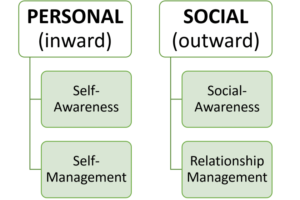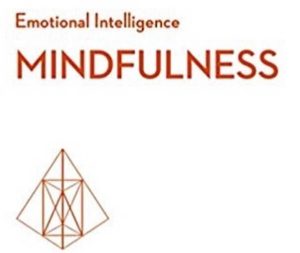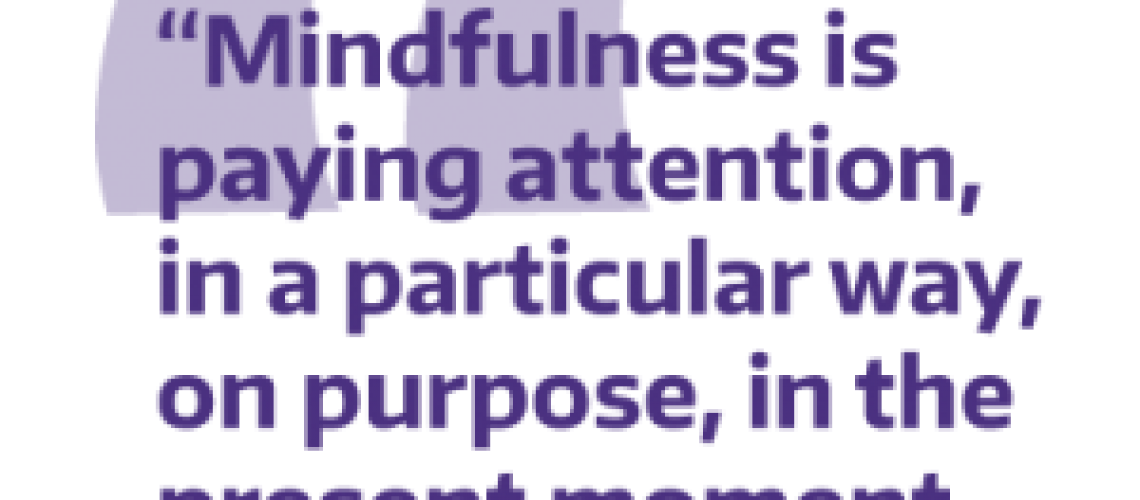Mindfulness is an Ally of Emotional and Social Awareness
To build social awareness, you need to recognize the importance of mindfulness in the social process. After all, you cannot pick up on subtle nonverbal cues when you are in your own head, thinking about other things, or simply zoning out on your phone. Social awareness requires your presence at the moment. While many of us pride ourselves on an ability to multitask, this means that you will miss the subtle emotional shifts taking place in other people that help you fully understand them.
- You are actually more likely to further your social goals by setting other thoughts aside and focusing on the interaction itself.
- Following the flow of another person’s emotional responses is a give-and-take process that requires you to also pay attention to the changes in your own emotional experience.
- Paying attention to others does not diminish your own self-awareness. By investing the time and effort to really pay attention to others, you will actually gain insight into your own emotional state as well as your values and beliefs.

For example, if you feel discomfort hearing others express certain views, you’ll have learned something important about yourself.
The skills that make up emotional intelligence can be learned at any time. It is important to remember that there is a difference between simply learning about EQ and applying that knowledge to your life. Just because you know you should do something does not mean that you will—especially when you become overwhelmed by stress, which can override your best intentions. In order to change the behavioral patterns by permanently change in ways that stand up under pressure, you need to learn how to override your health change behavioral pattern.
The key skills for building your EQ and improving your ability to manage emotions and connect with others are:
- Self-management
- Self-awareness
- Social awareness
- Relationship management
Building Emotional Intelligence: 4 key skills to increase your Emotional Quotient (EQ)
Key skill 1: Self-management
In order for you to engage your EQ, you must be able to use your emotions to make constructive decisions about your behavior. When you become overly stressed, you can lose control of your emotions and the ability to act thoughtfully and appropriately.
Think about a time when stress has overwhelmed you. Was it easy to think clearly or make a rational decision? Probably not. When you become overly stressed, your ability to both think clearly and accurately assess emotions—your own and other people’s—becomes compromised.
Emotions are important pieces of information that tell you about yourself and others, but in the face of stress that takes us out of our comfort zone, we can become overwhelmed and lose control of ourselves. With the ability to manage stress and stay emotionally present, you can learn to receive upsetting information without letting it override your thoughts and self-control. You will be able to make choices that allow you to control impulsive feelings and behaviors, manage your emotions in healthy ways, take initiative, follow through on commitments, and adapt to changing circumstances.
Key Skill 2: Self-awareness
Managing stress is just the first step to building emotional intelligence. The science of attachment indicates that your current emotional experience is likely a reflection of your early life experience. Your ability to manage core feelings such as anger, sadness, fear, and joy often depends on the quality and consistency of your early life emotional experiences. If your primary caretaker as an infant understood and valued your emotions, it’s likely your emotions have become valuable assets in adult life. But, if your emotional experiences as an infant were confusing, threatening or painful, it’s likely you’ve tried to distance yourself from your emotions.
But being able to connect to your emotions—having a moment-to-moment connection with your changing emotional experience—is the key to understanding how emotion influences your thoughts and actions.
Do you experience feelings that flow, encountering one emotion after another as your experiences change from moment to moment?
Are your emotions accompanied by physical sensations that you experience in places like your stomach, throat, or chest?
Do you experience individual feelings and emotions, such as anger, sadness, fear, and joy, each of which is evident in subtle facial expressions?
Can you experience intense feelings that are strong enough to capture both your attention and that of others?
Do you pay attention to your emotions? Do they factor into your decision-making?
If any of these experiences are unfamiliar, you may have “turned down” or “turned off” your emotions. In order to build EQ—and become emotionally healthy—you must reconnect to your core emotions, accept them, and become comfortable with them. You can achieve this through the practice of mindfulness.
Mindfulness is the practice of purposely focusing your attention on the present moment—and without judgment. The cultivation of mindfulness has roots in Buddhism, but most religions include some type of similar prayer or meditation technique. Mindfulness helps shift your preoccupation with a thought toward an appreciation of the moment, your physical and emotional sensations, and brings a larger perspective on life. Mindfulness calms and focuses you, making you more self-aware in the process.
Key skill 3: Social awareness
Social awareness enables you to recognize and interpret the mainly nonverbal cues others are constantly using to communicate with you. These cues let you know how others are really feeling, how their emotional state is changing from moment to moment, and what’s truly important to them. When groups of people send out similar nonverbal cues, you’re able to read and understand the power dynamics and shared emotional experiences of the group. In short, you are empathetic and socially comfortable.
Key skill 4: Relationship management
Working well with others is a process that begins with emotional awareness and your ability to recognize and understand what other people are experiencing. Once emotional awareness is in play, you can effectively develop additional social/emotional skills that will make your relationships more effective, fruitful, and fulfilling.
Become aware of how effectively you use nonverbal communication. It’s impossible to avoid sending nonverbal messages to others about what you think and feel. Body language speaks a thousand words. The many muscles in the face, especially those around the eyes, nose, mouth, and forehead, help you to wordlessly convey your own emotions as well as read other peoples’ emotional intent. The emotional part of your brain is always on—and even if you ignore its messages—others will not. Recognizing the nonverbal messages that you send to others can play a huge part in improving your relationships.
Use humor and play to relieve stress. Humor, laughter, and play are natural antidotes to stress. They lessen your burdens and help you keep things in perspective. Laughter brings your nervous system into balance, reducing stress, calming you down, sharpening your mind and making you more empathic. No wonder they say that “Laughter is the best medicine” and that is certainly true for me!
Learn to see conflict as an opportunity to grow closer to others. Conflict and disagreements are inevitable in human relationships. Two people cannot possibly have the same needs, opinions, and expectations at all times. However, that need not be a bad thing. Resolving conflict in healthy, constructive ways can strengthen trust between people. When conflict is not perceived as threatening or punishing, it fosters freedom, creativity, and safety in relationships.
If one really wants to succeed in life, one really needs to sharpen one’s Emotional Quotient (EQ). Again, it is “Mind Over Matter,” If you do not mind, it does not matter. So, live and let live.
#emotionalintelligenceEQ #mindfulness

